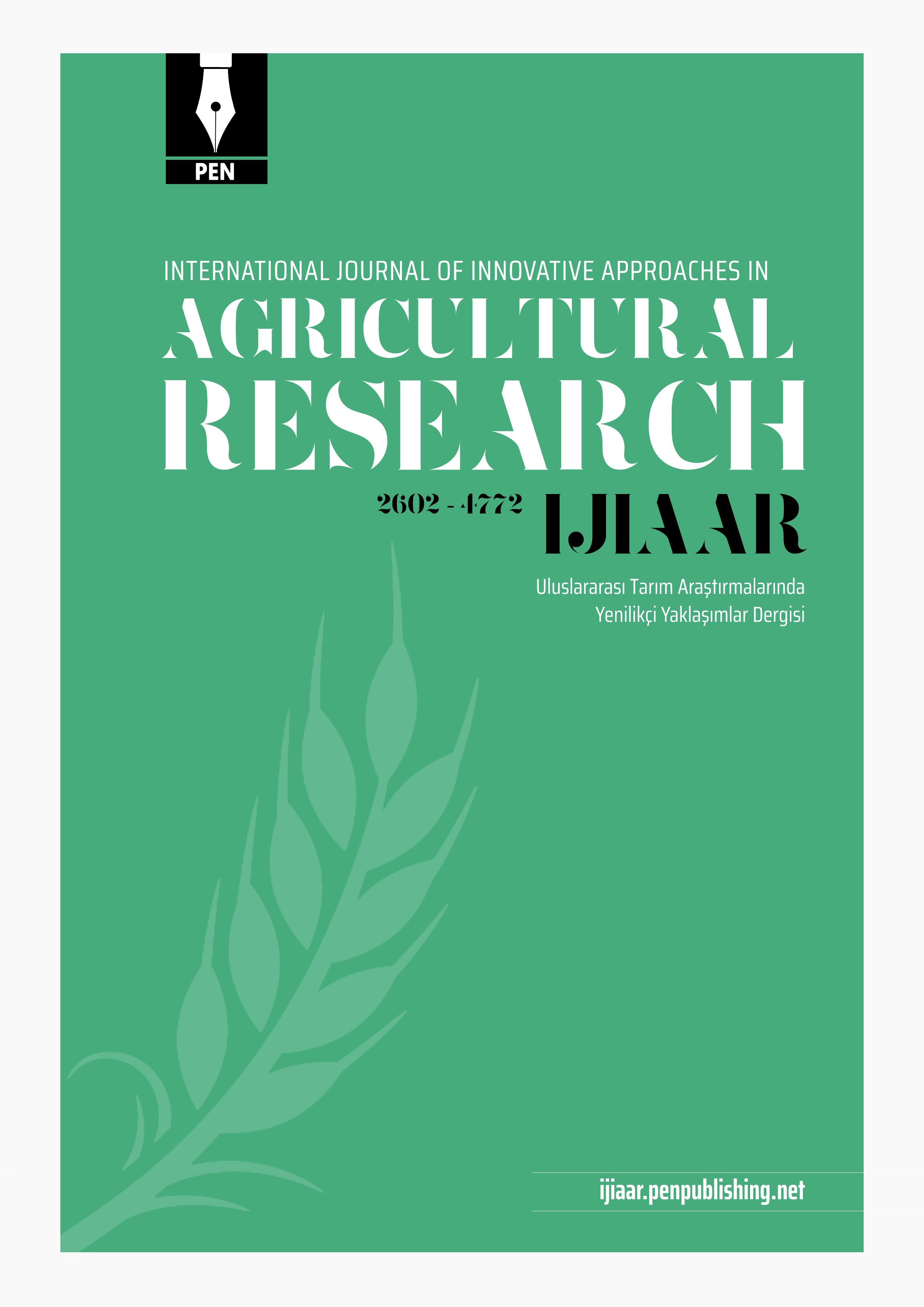
Uluslararası Tarım Araştırmalarında Yenilikçi Yaklaşımlar Dergisi
Yazarlar: A. Gülgün Öktem , Abdullah Öktem
Konular:-
DOI:10.29329/ijiaar.2020.238.6
Anahtar Kelimeler:Vermicompost,Dent Corn,Grain Yield,Sanliurfa
Özet: Corn is the most cultivated cereal plant in the world after wheat and rice. Grain yield of corn depends of genetic factors but the application of various nutrients to the soil is also effective for increasing yield. Vermicompost is used for increasing grain yield at the some plants recently. Worm fertilizer which is known as vermicompost is an organic fertilizer which fertilizer is digested by worms and converted into fertilizer. Vermicompost includes all enzymes, soil antibiotics, vitamins, growth hormones and humic substances for plant growth. In this study, it was aimed to determine the effects of various levels of vermicompost on the yield and some characteristics of corn plant. The study was conducted in 2017 growing season of Harran Plain second crop conditions. In the study, DKC-6120 corn variety was used as plant material. Different levels of vermicompost were applied as a supplementary to standard inorganic fertilizer. Vermicompost dosages were 0, 50, 100, 150, 200 kg da-1. The research was conducted according to the randomized complete block design with three replicates. Row spaces were 70 cm and intra row space was 20 cm. Seeds sown in 2-4 cm depth. Each parcel was built from 14 m2. In the study, hectoliter weight, ear weight, ear diameter, ear length, grain numbers of ear and grain yield values were determined. The highest hectoliter weight (80.37 g), ear weight (302.67 g), ear length (23.33 cm), grain number of ear (802.47 number) and grain yield (976.67 kg da-1) values were obtained from 200 kg da-1 vermicompost applications while the lowest values were seen at control parcels (77.87 g, 260 g, 21.79 cm, 710.27 number, and 895.24 kg da-1, respectively). Variance analysis was made with obtained data and the differences between the averages were compared according to the LSD test.